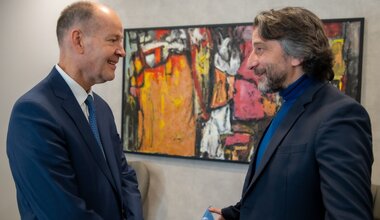Printing their way to a safer Kosovo: Young innovators 3D print face shields for health workers
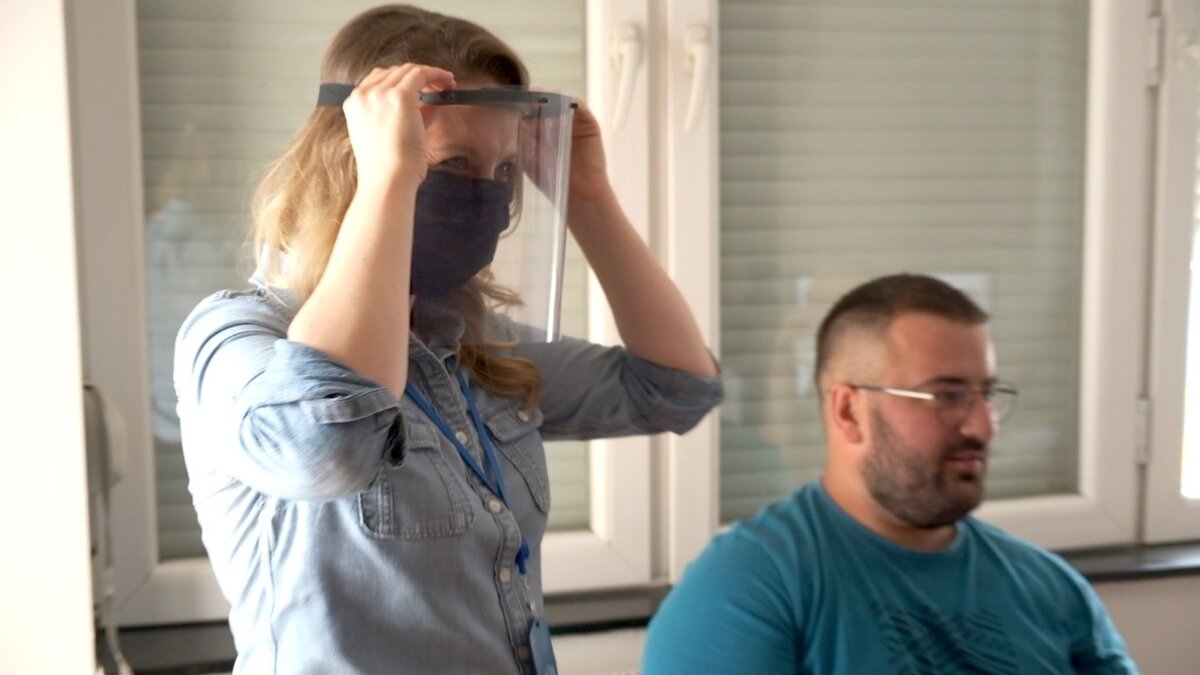
“Everyone should be working together now, no matter if you’re black or white.”
Fighting a “common enemy” has brought young innovators together across Kosovo to 3D print protective equipment, safeguarding frontline staff in a period of global shortage.
A number of organisations across Kosovo, including three assisted by UNMIK, have been leading efforts to make up shortfalls.
Not a moment wasted
Mitrovica-based tech NGO LINK played to their strengths and started printing protective face shields from March, having now produced – and distributed - 450 shields to workers in Mitrovica and across Kosovo.
LINK director Marko Rakić said his team looked at the needs and tried to maximise their own resources, relying on volunteer labour to get underway.
“That was the best we could afford and what people needed at that time,” he said.
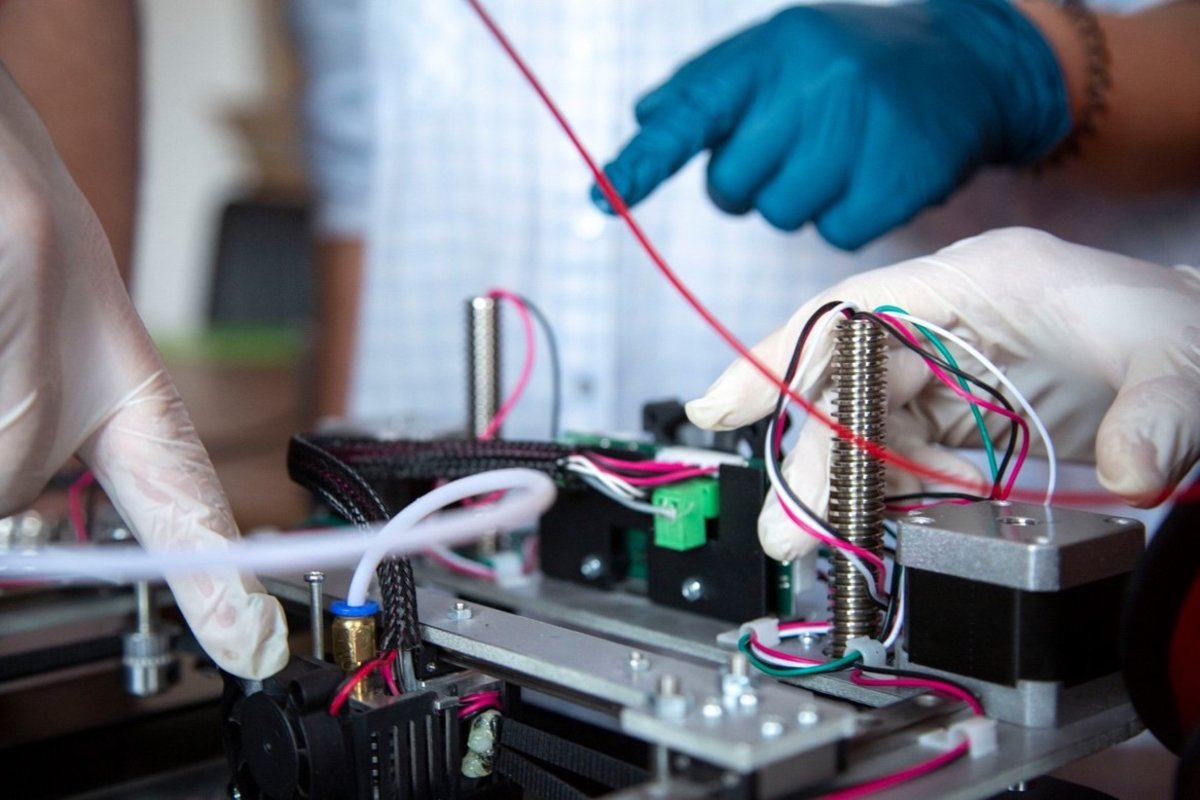
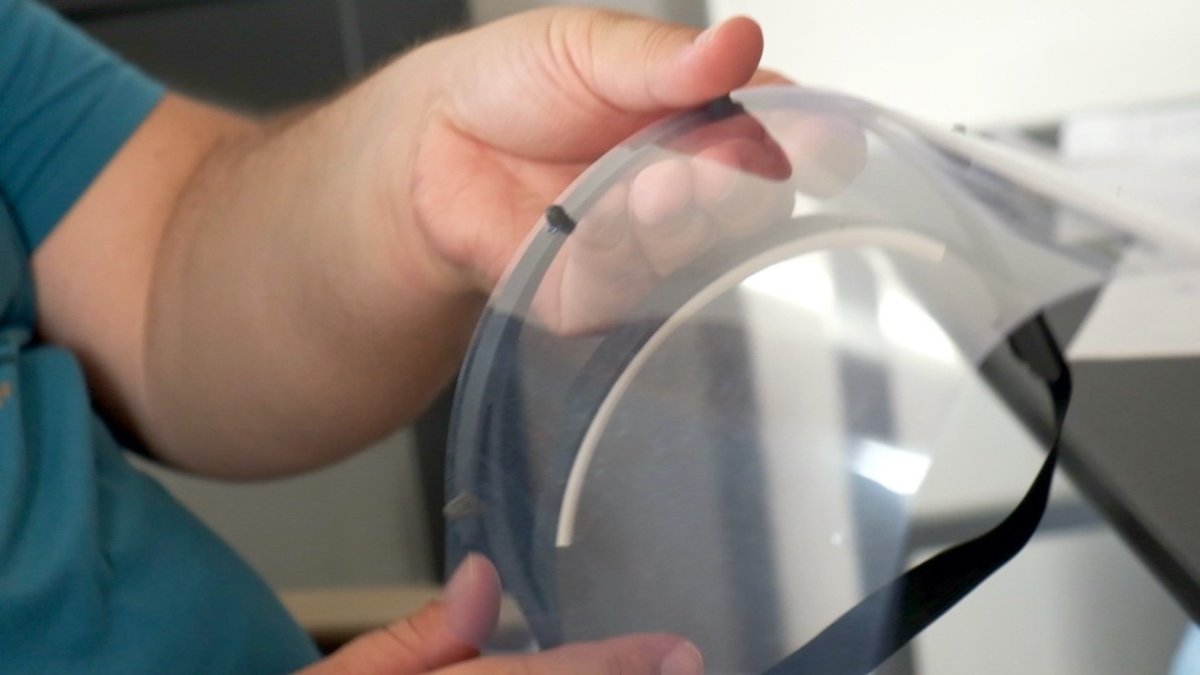
The shields have been donated, free of charge, to hospitals in the Mitrovica North and South, Zveçan/Zvečan, Zubin Potok, Leposaviq/Leposavić, Suharekë/Suva Reka, Kamenicë/Kamenica, Donja Gušterica, Gjilan/Gnjilane, and Vushtrri/Vučitrn.
“Those shields came at a much needed time,” said Caritas Kosova medical nurse Rajmonda Muzliukaj.
Muzliukaj said the shields helped in her daily work with vulnerable people in Mitrovica’s Roma Mahalla.
“To say that on a daily basis you can make a difference, well, you can. One act of kindness a day can do it.”
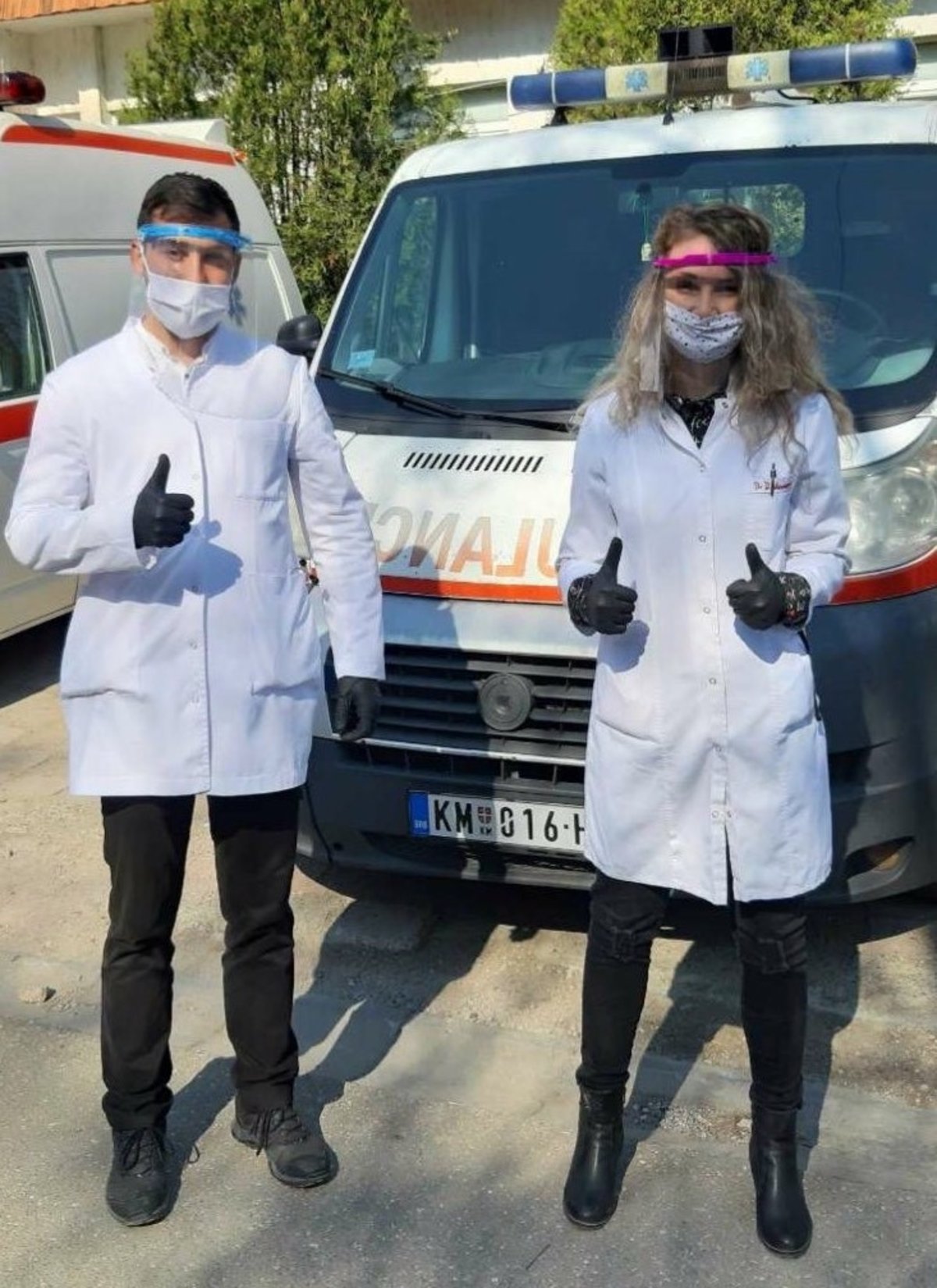
The face shields, worn over masks, are intended to protect healthcare workers from spray or splatter of body fluids on the facial area, with the ultimate aim of reducing the chances of contracting COVID-19 from patients.
Arif Kadriu, who coordinated NGO LINK’s donations in South Mitrovica, experienced the impact of the cross-community donations first-hand.
“The smile on medical staff when they received the masks was one of the best moments of my life,” he said.
LINK’s volunteers first began producing shields in coordination with the Technical School Mihailo Petrović – Alas in North Mitrovica on a 3-D printer. The shields are made of plastic, with approximately 35 pieces produced per kilogram of material. With the support from UNMIK, LINK purchased two new 3D printers and additional filament material, increasing production to 15 pieces per day and furthering the team’s reach.
LINK’s Rakić said examples of cooperation across Kosovo were cause for hope.
“We have gathered together in fighting a common enemy, COVID-19. And hopefully, we will keep cooperating together in the future in fighting whatever is bad that affects all communities.”
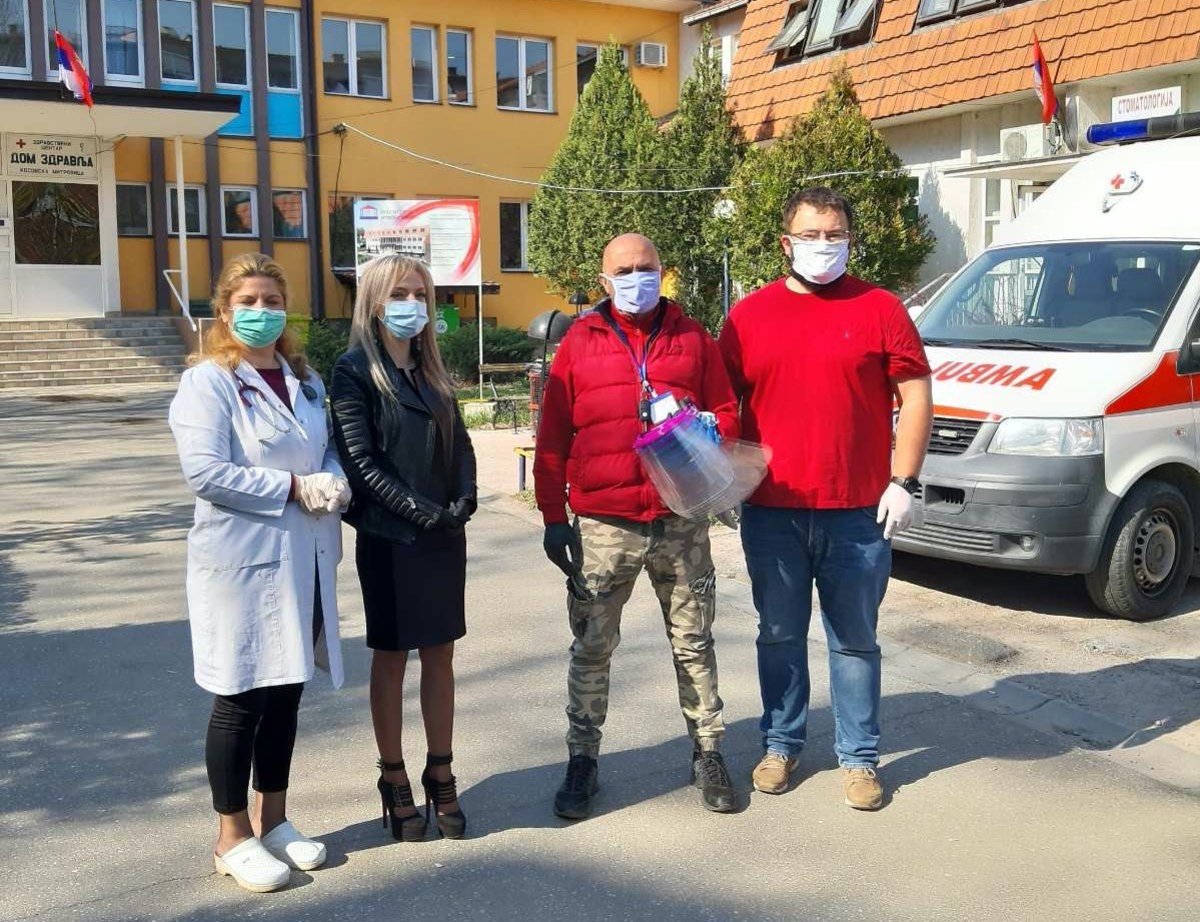
Kosovo-wide donations
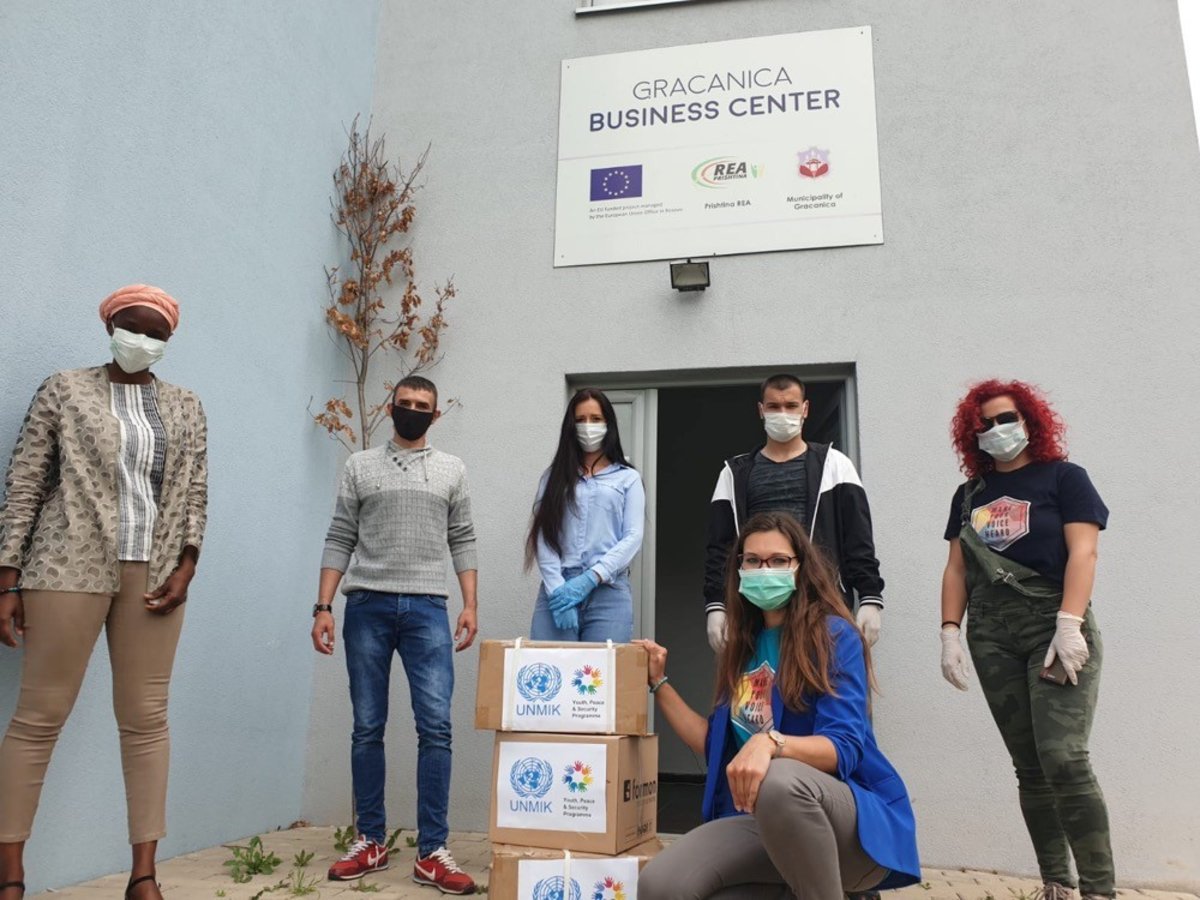
After meeting Dr. Jehona Krasniqi from Pristina’s Infectious Disease Clinic, during an UNMIK-sponsored debate on Jeta Ne Kosove, a plan for broader donations was made and Rakić and his team began distributing to Suharekë/Suva Reka municipality, before other requests came from Gjilan/Gnjilane and Kamenicë/Kamenica.
Meanwhile, Gracanica Innovation Centre has been printing shields through day- and night-shifts since the beginning of the pandemic – managing to produce 600 shields for donation with just one printer, with about 200 going to Gracanica Hospital and the rest going to local municipalities.
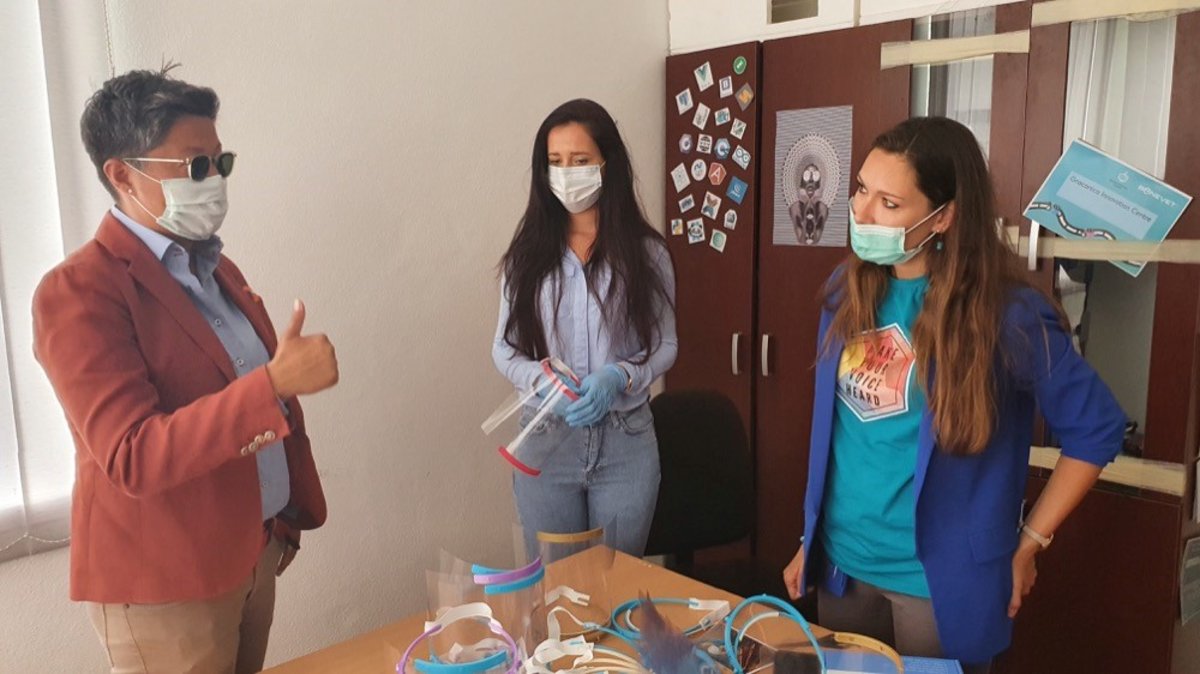
Neighbourly rescue ensures continued deliveries
Gracanica Innovation Centre were recently helped out by Pristina-based company Formon, who donated filament when they ran out – enabling printing of face shields to continue, cutting delivery time down by as much as 90 per cent, according to Đorđe Marković.
“Communities working with communities is very important – we all need to work together to get over this crisis as fast as we can,” Marković said.
“Everyone should be working together now, no matter if you’re black or white – there’s a lot of hate in the world and right now there’s no room for that.”
UNMIK recently donated three more printers to the team, meaning a 300 per cent increase in production capacity.
3D shields come to Klokot/Kllokot
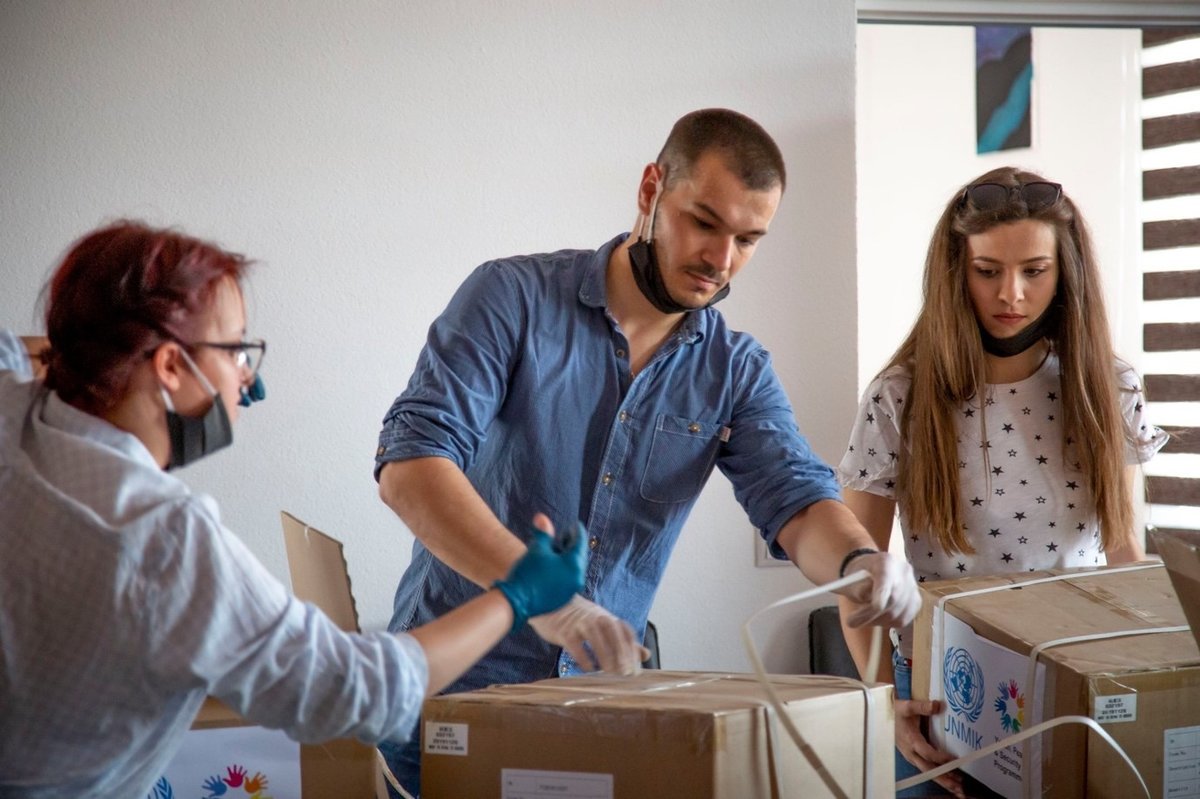
UNMIK also made the same donation to the Center for Diversity and Minority Development (SMAART) in Klokot/Kllokot. The centre, which was launched through UNMIK's Confidence Building Project funding in March 2020, was about to open its doors to an underserved multiethnic youth community before the pandemic hit.
Qendresa Mehmeti, an 18-year-old volunteer, said the centre had already begun printing face shields after receiving the printers just over a week ago.
“It’s really important that those people who are protecting communities are themselves protected. We’re glad we will be able to start making donations to our frontline workers soon!”
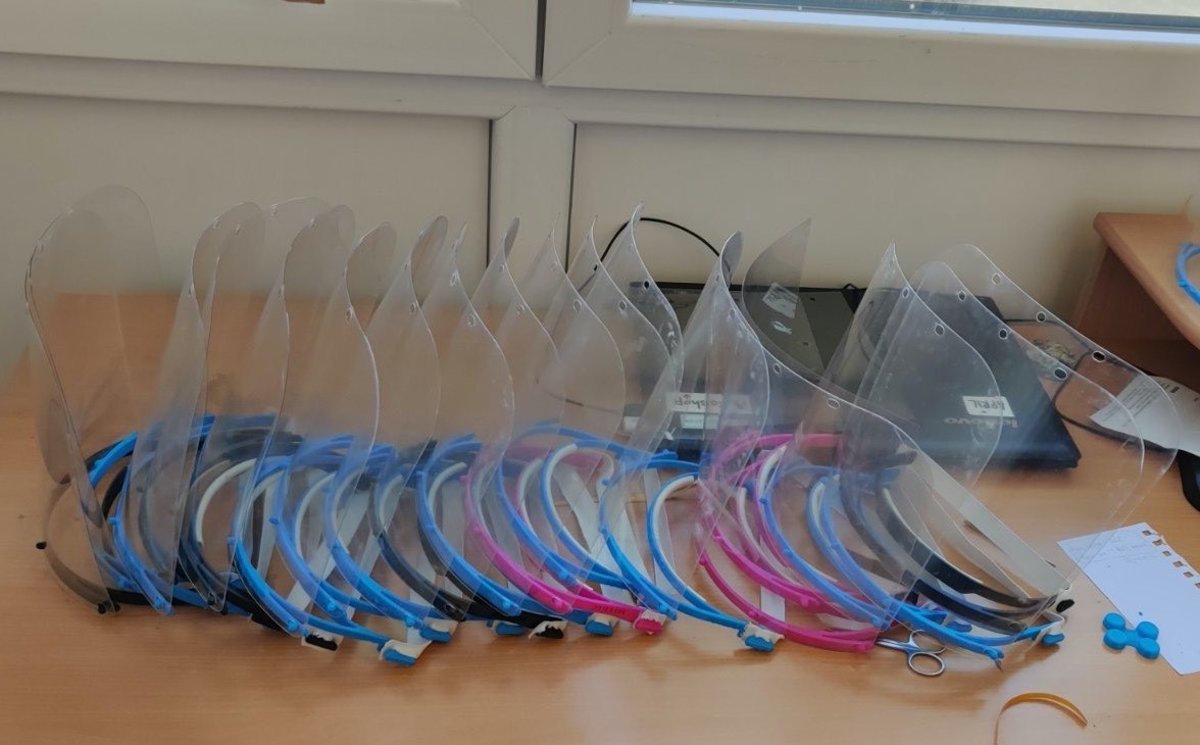
 UN
UN United Nations Peacekeeping
United Nations Peacekeeping



